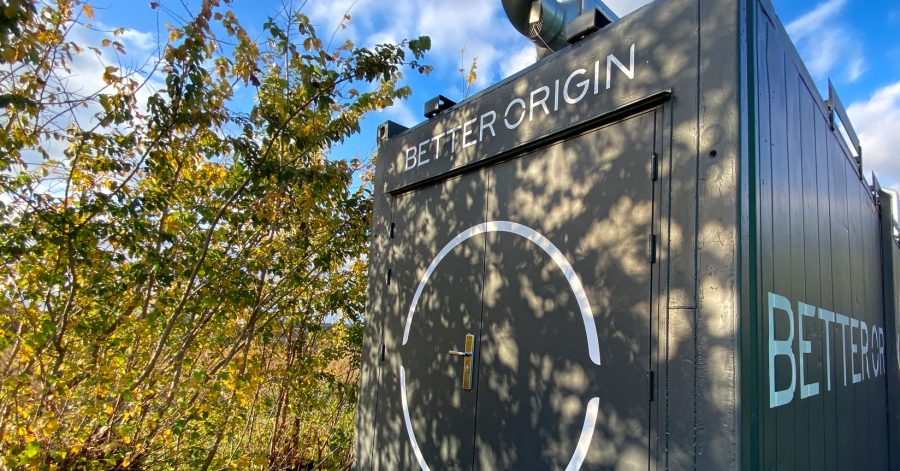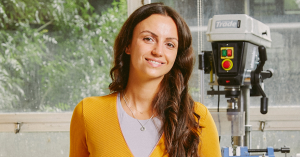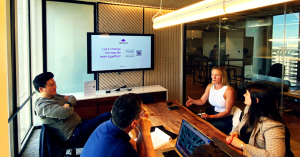Although the consumption of insects is just now starting to get scientific and legal approvals as safe for humans, the use of various bugs and flies for the production of animal feed is becoming a popular practice aimed at ensuring food security and sustainable food chains. The production of livestock feed for the agricultural industry is not only taking a large proportion of the world’s arable land but is also mainly reliant on the use of soy, which is the crop that is the main contributor to deforestation.
Better Origin is a startup that democratizes insect farming co-founded by Fotis Fotiadis from Greece, with a background in sustainable and mechanical engineering, and the Slovenian specialist in biological natural sciences Miha Pipan. Better Origin is addressing the modern food supply chain problems by developing a cost-effective and scalable network of AI-powered insect mini-farms called X1 that uses patented technology to transform local food waste into nutrients for animal feed. The circular economy solution of the startup combines automation and AI in order to mimic natural recycling processes. The startup has recently raised fresh $3M to continue scaling up its “Internet of Insects” solution in a round led by the Berlin-based VC Fly Ventures and the solar entrepreneur Nick Boyle with the participation of the Greek VC for early-stage disruptive tech startups Metavallon VC which had already invested €700K in the previous investment round of Better Origin in 2019.
How does the “Internet of Insects” work?
Basically, the insect mini-farms are boxes with trays of black larvae that feed on biomass from waste food until they grow, become rich in proteins, and suitable to be turned into animal feed. The machine learning and automation technology used in the X1 mini-farms is stored in shipping containers so that it is easy to deploy by any farm that has access to electricity. The AI helps farmers monitor the feeding process and detect and inspect the health of the insects in order to adjust the X1 mini-farms accordingly if there is a need. The larvae, which unlike common expectations are dry and do not smell bad, are grown over a one-two weeks period after which they can be used to feed animals in farms directly without any need for processing and additives.
It looks like this “Internet of Insects” technology is becoming increasingly popular not only in Europe with the growth of startups such as the UK-based AgriProtein and the French InnovaFeed, but also in the SEE region. Here, the Bulgarian Nasekomo develops a similar automated insect rearing technology with the difference that they do it in a factory which is a more centralized way than that of Better Origin.
Scalability, sustainability, and other goals
According to the co-founder and current CEO Fotis Fotiadis the fact that Better Origin’s solution is not centralized and does not require high initial capital investments, means that it can potentially eliminate the barriers to entry for many farmers worldwide. The US provider of food, agriculture, and financial products and services giant Cargill also highlights that insects have the biggest potential to become novel feed ingredients in terms of scalability, sustainability, and R&D perspective. Moreover, according to Better Origin, animals who are fed with insects show increased productivity, higher welfare, and better health. Fotiadis notes that the goal of Better Origin is not to create fully automated insect farms but rather to create opportunities for more farmers by using technology.
With the raised funds the startup plans to boost its scaling efforts in the UK where the team is currently based by deploying more insect mini-forms. In the long-term term, the team of Better Origin envisions developing similar insect and tech-based products for the entire supply chain. The impact that the startup hopes to achieve by 2023 is to upcycle more than 50k tonnes of food waste and around 100k tonnes of greenhouse emissions.







